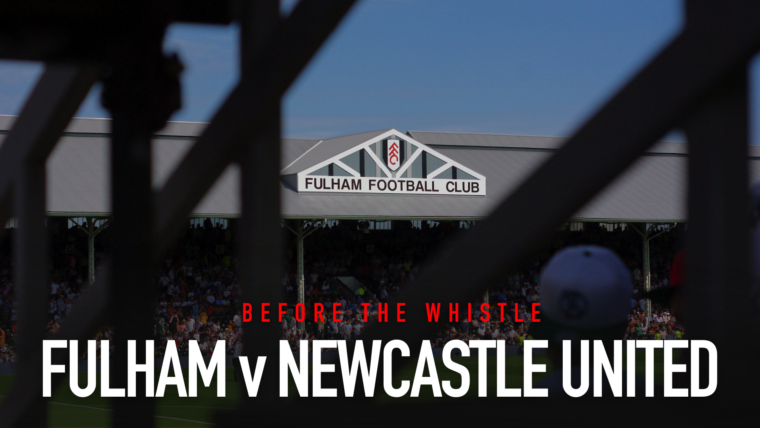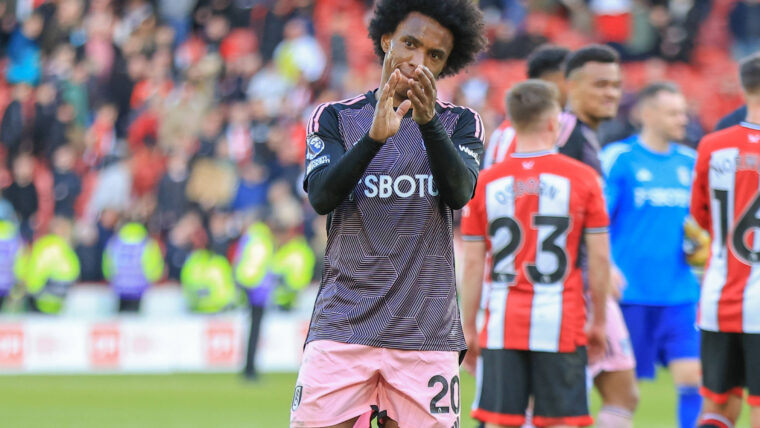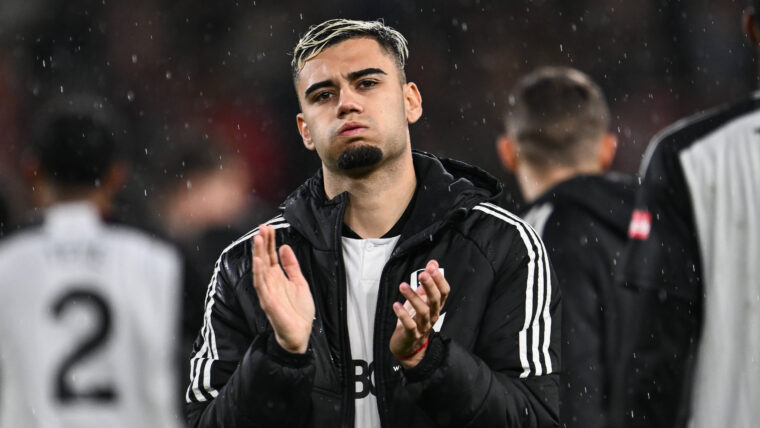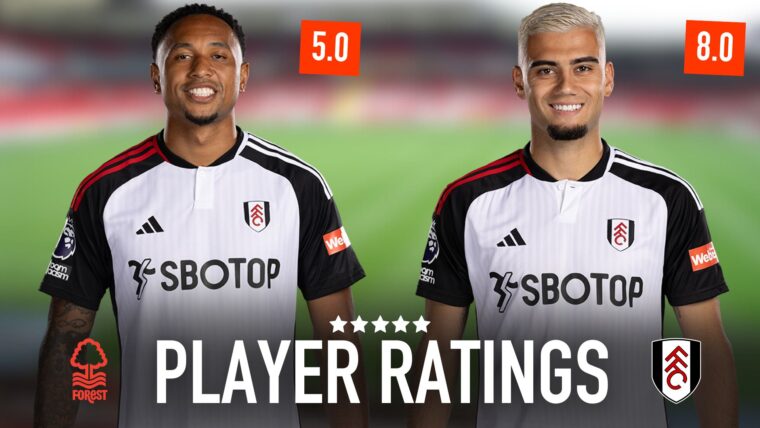The Future of the Armband
Written by Jack J Collins on 4th November 2016
I took some time to come round to Scott Parker as a Fulham player. Initially I was near-delirious when he signed for the club – here was a man who had won the FWA Player of the Year just two seasons ago, and I was convinced that he was the answer to the midfield hole that had been gaping since Danny Murphy had left the season before.
It was not, however, the happy marriage that I and many others had predicted. Although Parker never looked out of place, he wasn’t the same player he had been prior to the injury he picked up on international duty the year before. His movement looked slow and his passing game, although consistent, was laboured and ponderous. The player who had won that award in 2011 was not the same man who was wearing the number 28 for Martin Jol’s Fulham.
Indeed, it was his central midfield partner, Steve Sidwell, who took the majority of the plaudits, and before long I was a vocal and vehement supporter of the Sidwell – Karagounis axis at the base of the Whites’ midfield, with Holtby or Ruiz ahead of them. With Karagounis, I argued at the time, at least you got blood and thunder, even if he didn’t quite have the technical nous that Parker possessed.
Then came relegation and the mass exodus of Fulham’s old guard under Felix Magath. In the midst of this, I assumed that Parker would leave and go to take up a post at another lower end Premier League club, where it was certain a player of his experience would be able to help a side in need of a cool head. Instead, he remained at the club and took the armband from the exiled Brede Hangeland, cementing his desire to return Fulham to the Premier League by taking the now vacant number 8 shirt. Scott Parker was here to stay.
“Parker’s solitary trudge to the Fulham fans at Villa Park in October, to give his shirt to a young fan, to thank the travelling hordes and to almost heartbreakingly apologise to them for the performance, is the epitome of how great captains embed themselves in the hearts of supporters.”
Despite being impressed by his loyalty to a club who, truthfully, he owed nothing; I was still not convinced that Parker was the answer in the middle of the park. Anyone who sat anywhere close to me in the Hammersmith End during our first Championship season would have heard me loudly proclaiming that I had never actually seen Scott Parker pass the ball forwards. Whilst protection of possession I understood, Parker’s turning back towards your own goal manoeuvre, which he often utilised despite options in front of him, was exceptionally frustrating to watch at times.
However, I would also be the first to hold my hands up and say I was wrong. In the last campaign and this one, Scott Parker’s courage, determination and leadership have been unquestionable. His engine, as I’ve mentioned before, continues to astound me, and watching the man hare around the pitch to try and drive his side forwards again has become something which Fulham fans have come to respect perhaps more than anything else.
A great captain is more than just a great player – a great captain inspires those around him to believe even when all seems lost, who encourages and instructs in equal measure, who can raise morale even in the darkest times. Parker is just that – his solitary trudge to the Fulham fans at Villa Park in October, to give his shirt to a young fan, to thank the travelling hordes and to almost heartbreakingly apologise to them for the performance, is the epitome of how great captains embed themselves in the hearts of supporters. Even in the gloom of such a dreary loss in Birmingham, where Fulham had carved almost no chances and put in a dismal shift, ‘Super Scotty Parker’ rang around the terraces after the final whistle.

Whilst Parker continues to defy his years and work hard for a club he now clearly loves, the sad truth is that these are the twilight years of Parker’s club career, especially at the top levels. This begs the question of who will be the person given the responsibility of the armband when Parker hangs up his boots, or at least handed the vice-captaincy permanently for when Parker’s game time begins to dry up for good. So far this season it’s mostly been Tom Cairney who has taken on the captaincy when our No8 has been out of the side.
Whilst this might be a bold assertion, I’m not sure this is the correct decision. Whilst I think Cairney is crucial to the side and is probably Fulham’s most talented player, I’m not convinced that, as yet, he’s captain material. There are a number of reasons for this, and it’s been discussed on the podcast before, but I think that as a player, Cairney wants to be the superstar slightly too much.
“A good leader takes a little more than his share of the blame; a little less of his share of the credit.”
If we’re one down with five minutes to play, I think that our No10 might try to do too much himself and end up missing a golden opportunity to find a teammate in a better position. Whilst this has no bearing on the captaincy, and he could just as well do so without the armband on, it’s a question of how a situation like that would be dealt with – part of a captain’s job is to know when to put an arm round a player’s shoulder in that kind of situation, and when they need to be clipped round the ear.
It’s not just that though. A moment springs to mind during the Burton Albion game where Denis Odoi tried to play a through ball to skipper Cairney. Admittedly the ball was over hit, but only slightly, and the idea was a good one. Instead of sensing that, however, Cairney turned around and lambasted the right back, who looked as shocked as anyone that such a slight error of judgement had ended in a rollicking from his captain. When Scott Parker loses the ball, he goes in search of it back. You don’t get that kind of work rate from Tom Cairney.
‘It’s during the times where things aren’t so easy that you see what the true mettle of a leader is. “Anyone can be a general during peace time”, as the old adage goes.’
Some people will argue, and quite rightly so, that he’s young and obviously that kind of petulance will grow out of him as he matures as a player, and especially if he’s handed responsibility. Whilst this is correct, I’m not a fan of having your talisman as your captain – Cristiano Ronaldo for Portugal, for example – because it can lead to them trying to do it all alone, which rarely works, especially when the player in question isn’t quite Cristiano Ronaldo.
However, Ryan Tunnicliffe is the same age as Tom Cairney; and for me and a host of other fans, he is Parker’s natural successor. His work rate, desire and dedication are unquestionable, and his natural leadership ability shone through in the League Cup against Bristol City, where he put in a typically robust performance and led by example despite being played in an unfamiliar right back role.

Tunnicliffe has his detractors, led by those who are quickest to point out his social media discrepancies in the past. I feel this is unfair, firstly because I feel it was an interaction between two players that have been colleagues in the past, and secondly because those people are undoubtedly the same people calling for Cairney to be given time to mature as a captain. If one player needs maturing time, surely the same has to be said for both. The best example of good captaincy under pressure in a bad situation was shown by Tunnicliffe in the aforementioned Bristol City tie.
Fulham, having suffered a late Tammy Abraham strike, were 2-1 down with just injury time to go. Tunnicliffe, playing as a right-back, picked up the ball on the right and drove down the right wing, where he was unceremoniously wiped out by a red shirt. Whilst the referee deigned not to see anything wrong with the challenge, Tunnicliffe launched himself off the turf and subsequently won the ball back, driving with purpose into the opposition half before looking up and sliding an inch perfect pass into space on the left, where Kebano and Malone managed to get mixed up. Whilst clearly frustrated with the two, Tunnicliffe immediately turned that displeasure into encouragement, trying to get his side firing again. Whilst his attempts were ultimately futile, the sentiment was exactly what I feel a captain should be doing in a given situation.
I’m not trying to set Tunnicliffe and Cairney against each other here, and some will say this entire article might be inane because we might sign a natural leader in any of the next transfer windows. However, it’s an interesting one to consider, because it allows the fans to weigh up some of the characters in Fulham’s squad. The cut-and-thrust of it is that ultimately, it’s easy to be a captain when your side is doing well, and it’s during the times where things aren’t so easy that you see what the true mettle of a leader is. “Anyone can be a general during peace time”, as the old adage goes.
Arnold H. Glasow put it better, perhaps: “A good leader takes a little more than his share of the blame; a little less of his share of the credit.” Tunnicliffe is a selfless player, one who puts heart, soul and body on the line every time he plays. It may not always be pretty, he may not always get it right, but his passion, drive and willingness to put everything in every time he crosses the whitewash mean that for me, at least, he’s the natural heir to Scott Parker’s midfield berth, and, perhaps more importantly, his captain’s armband.



